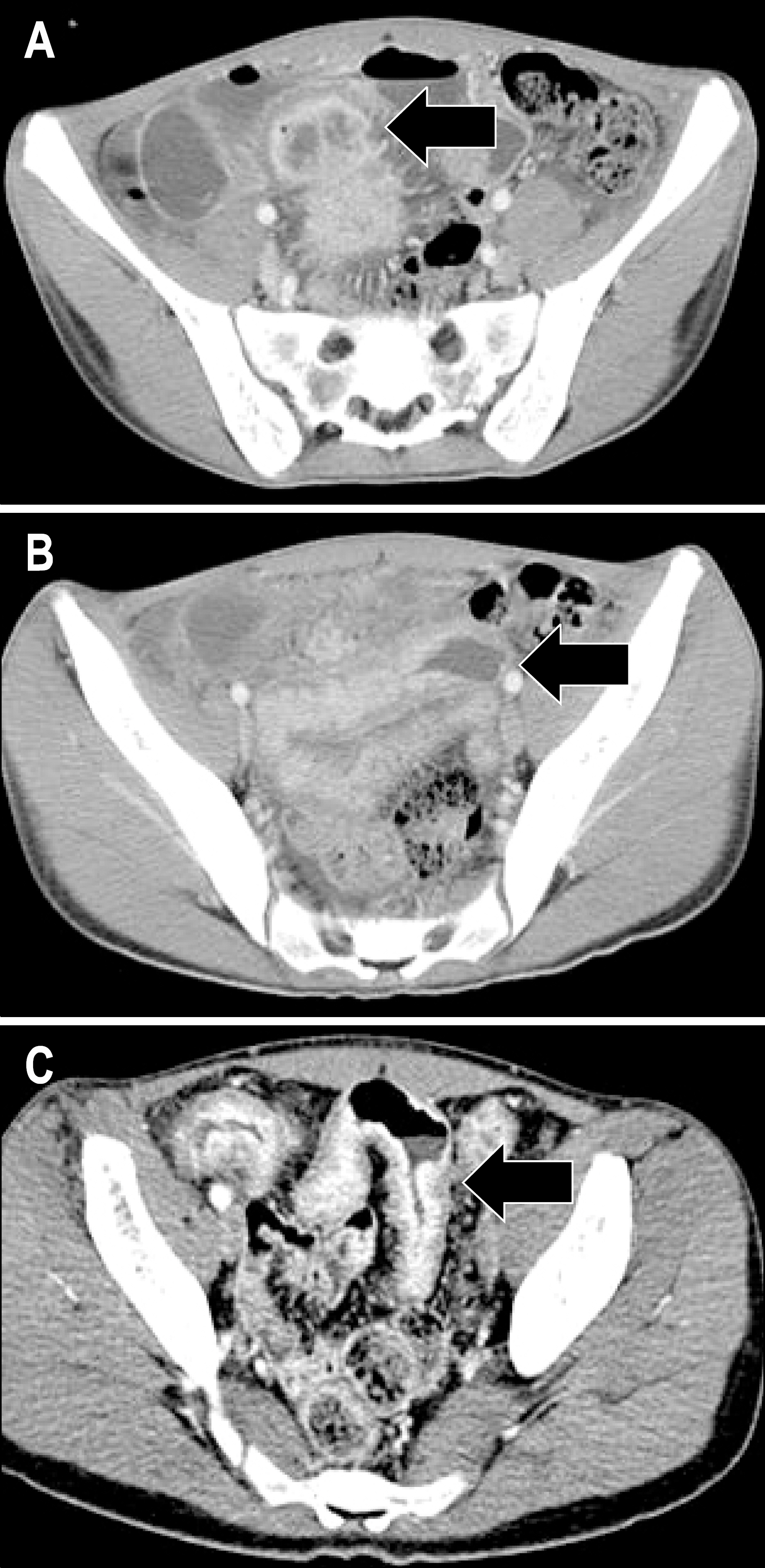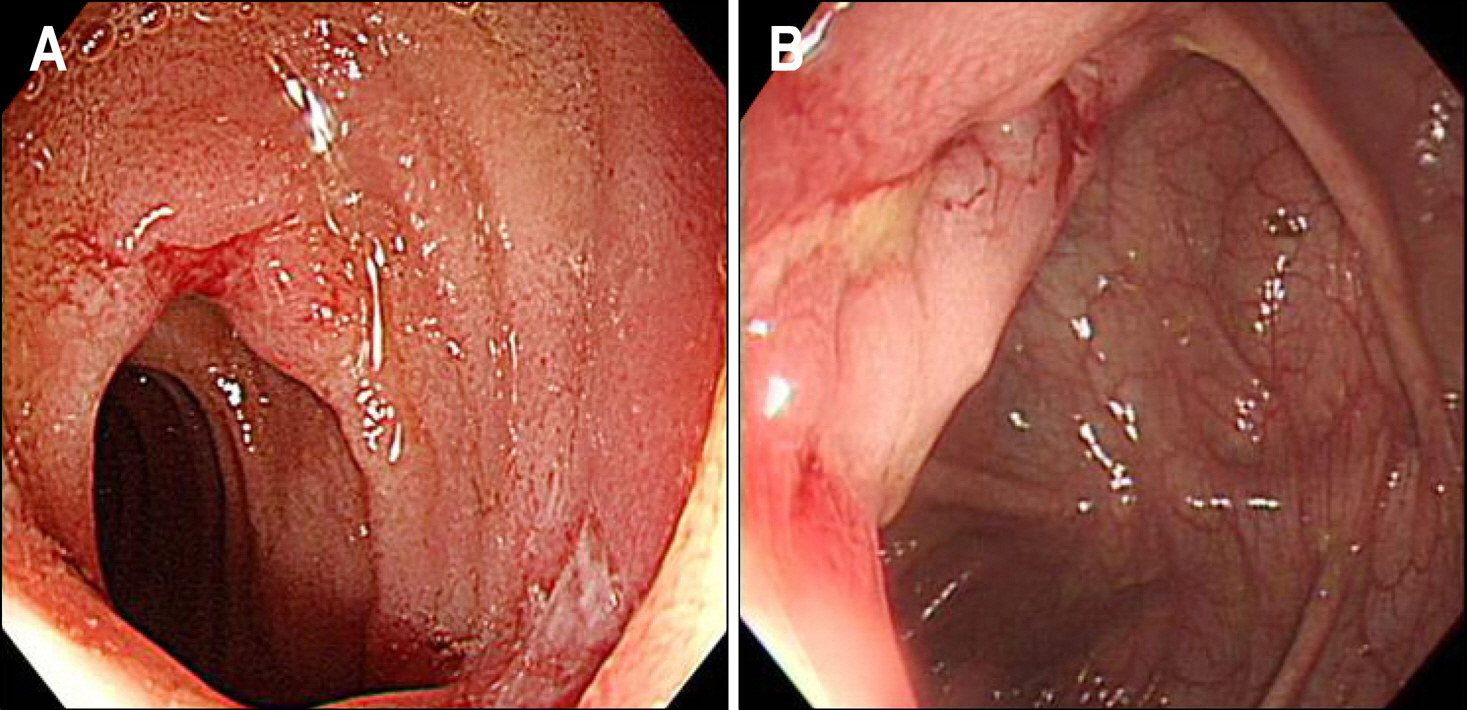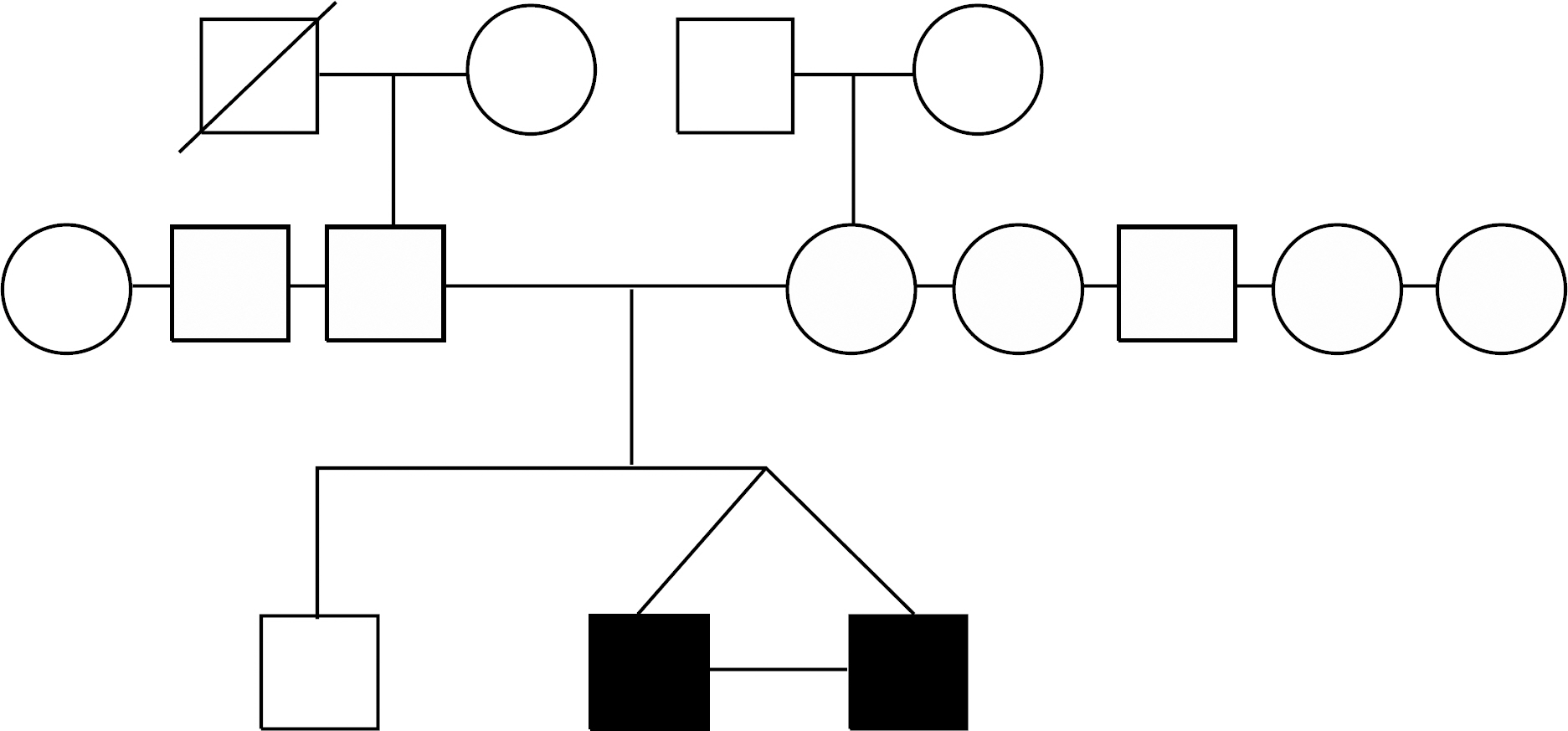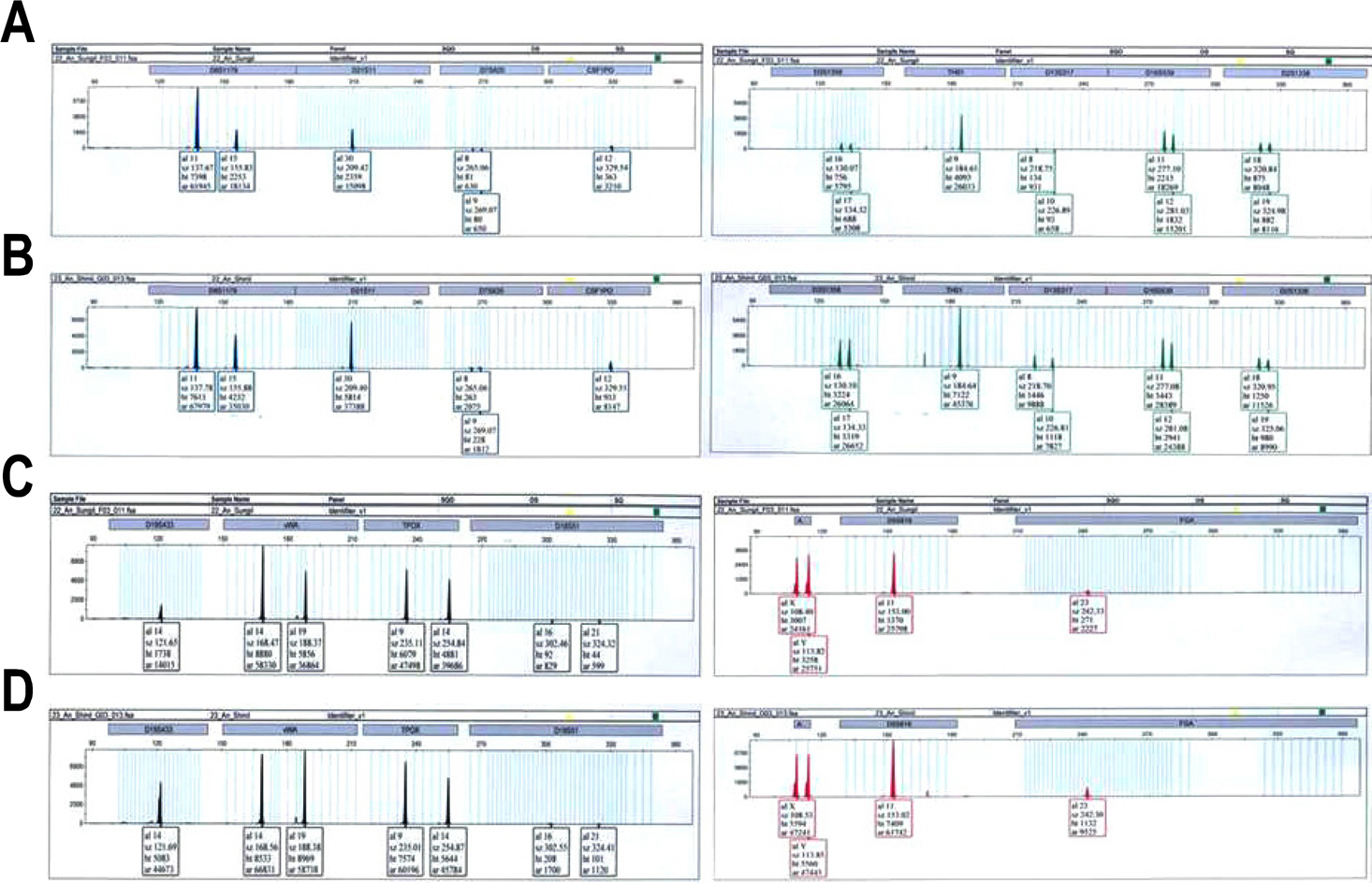Korean J Gastroenterol.
2010 Jan;55(1):68-72. 10.4166/kjg.2010.55.1.68.
A Case of Monozygotic Twins with Crohn's Disease
- Affiliations
-
- 1Department of Internal Medicine, University of Ulsan College of Medicine, Asan Medical Center, Seoul, Korea. capsulendos@gmail.com
- 2Department of Laboratory Medicine, University of Ulsan College of Medicine, Asan Medical Center, Seoul, Korea.
- KMID: 1775929
- DOI: http://doi.org/10.4166/kjg.2010.55.1.68
Abstract
- Although the incidence and prevalence rates of IBD in Korea are still lower than Western populations, they have been increasing rapidly during the past decades. Crohn's disease (CD) tends to run in families because it is thought to be related to genetic susceptibility coupled with environmental factors. A large number of monozygotic and dizygotic twin pairs with inflammatory bowel disease have been reported in western countries. The population relative risk in first-degree relatives is considered to be about equal in both Koreans and westerners. To our best knowledge, there is no report in monozygotic twins with CD in Korea. This case report is the first documented occurrence of concordant CD occurring in monozygotic twins in Korea.
Keyword
MeSH Terms
Figure
Reference
-
1. Shanahan F. Crohn's disease. Lancet. 2002; 359:62–69.
Article2. Yang S, Yun S, Kim J, et al. Epidemiology of inflammatory bowel disease in the Songpa-Kangdong district, Seoul, Korea, 1986-2005: a KASID study. Inflamm Bowel Dis. 2008; 14:542–549.
Article3. Halfvarson J, Bodin L, Tysk C, Lindberg E, Jarnerot G. Inflammatory bowel disease in a Swedish twin cohort: a longterm follow-up of concordance and clinical characteristics. Gastroenterology. 2003; 124:1767–1773.
Article4. Orholm M, Binder V, Sorensen T, Rasmussen L, Kyvik K. Concordance of inflammatory bowel disease among Danish twins. Results of a nationwide study. Scand J Gastroenterol. 2000; 35:1075–1081.5. Orholm M, Munkholm P, Langholz E, Nielsen O, Sorensen T, Binder V. Familial occurrence of inflammatory bowel disease. N Engl J Med. 1991; 324:84–88.
Article6. Peeters M, Nevens H, Baert F, et al. Familial aggregation in Crohn's disease: increased age-adjusted risk and concordance in clinical characteristics. Gastroenterology. 1996; 111:597–603.
Article7. Park J, Yang S, Byeon J, et al. Familial occurrence of inflammatory bowel disease in Korea. Inflamm Bowel Dis. 2006; 12:1146–1151.
Article8. Silverberg M, Satsangi J, Ahmad T, et al. Toward an integrated clinical, molecular and serological classification of inflammatory bowel disease: report of a working party of the 2005 montreal world congress of gastroenterology. Can J Gastroenterol. 2005; 19(suppl A):S5–S36.
Article9. Thia KT, Loftus EV Jr, Sandborn WJ, Yang SK. An update on the epidemiology of inflammatory bowel disease in Asia. Am J Gastroenterol. 2008; 103:3167–3182.
Article10. Tysk C, Lindberg E, Jarnerot G, Floderus-Myrhed B. Ulcerative colitis and Crohn's disease in an unselected population of monozygotic and dizygotic twins. A study of heritability and the influence of smoking. Gut. 1988; 29:990–996.
Article11. Thompson N, Driscoll R, Pounder R, Wakefield A. Genetics versus environment in inflammatory bowel disease: results of a British twin study. BMJ. 1996; 312:95–96.
Article12. Spehlmann M, Begun A, Burghardt J, Lepage P, Raedler A, Schreiber S. Epidemiology of inflammatory bowel disease in a German twin cohort: results of a nationwide study. Inflamm Bowel Dis. 2008; 14:968–976.
Article13. Halfvarson J, Jess T, Bodin L, et al. Longitudinal concordance for clinical characteristics in a Swedish-Danish twin population with inflammatory bowel disease. Inflamm Bowel Dis. 2007; 13:1536–1544.
Article14. Hugot J, Chamaillard M, Zouali H, et al. Association of NOD2 leucine-rich repeat variants with susceptibility to Crohn's disease. Nature. 2001; 411:599–603.
Article15. Ogura Y, Bonen D, Inohara N, et al. A frameshift mutation in NOD2 associated with susceptibility to Crohn's disease. Nature. 2001; 411:603–606.
Article16. Lee G, Kim C, Kim J, Jung H, Song I. Frequency analysis of NOD2 gene mutations in Korean patients with Crohn's disease. Korean J Gastroenterol. 2005; 45:162–168.17. Inoue N, Tamura K, Kinouchi Y, et al. Lack of common NOD2 variants in Japanese patients with Crohn's disease. Gastroenterology. 2002; 123:86–91.
Article18. Cho JH, Weaver CT. The genetics of inflammatory bowel disease. Gastroenterology. 2007; 133:1327–1339.
Article19. Yang SK, Park M, Lim J, et al. Contribution of IL23R but not ATG16L1 to Crohn's disease susceptibility in Koreans. Inflamm Bowel Dis. 2009; 15:1385–1390.
Article






